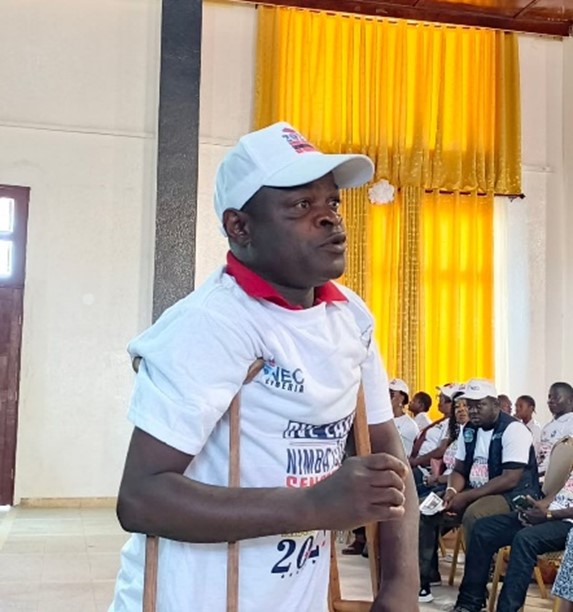The disabled community in Nimba County, Liberia, is demanding inclusion in the forthcoming Mineral Development Agreement (MDA) between the Liberian government and ArcelorMittal Liberia, a multinational steel company. D. Abestine Tozay, President of the Nimba County Disabled Community, voiced the community’s profound frustration with their exclusion from the initial MDA, which has governed ArcelorMittal’s operations for over two decades. This exclusion, according to Mr. Tozay, constitutes a protracted injustice against the disabled population, leaving them marginalized despite the company’s multi-million dollar operations within their country. As a new MDA is being drafted, they are demanding their rightful place at the table, emphasizing that the time for inclusivity has arrived.
Mr. Tozay acknowledges the context of the first MDA, signed during Liberia’s post-war recovery period when attracting foreign investment was paramount. He argues, however, that the current context demands a shift in priorities. The new agreement, he insists, must reflect the nation’s evolved focus on equity and social justice for marginalized groups, including people with disabilities. This includes comprehensive provisions ensuring access to healthcare, education, employment, and other fundamental social benefits for PWDs across all three counties where ArcelorMittal operates: Nimba, Bong, and Grand Bassa. He underscores that the disabled community is seeking equal opportunities, not charity, and is asserting their fundamental rights.
The disabled community is prepared to escalate their advocacy efforts if their concerns are disregarded in the revised MDA. They threaten protests targeting the offices and homes of legislative caucus members to draw attention to what they perceive as the government’s failure to protect its disabled citizens. Mr. Tozay highlights Liberia’s ratification of various international treaties and protocols protecting the rights and welfare of people with disabilities, emphasizing that excluding them from national agreements violates these international obligations. Furthermore, he points to existing national legislation mandating companies to allocate at least 4% of their workforce to people with disabilities, a law he claims ArcelorMittal has consistently ignored, resulting in qualified disabled individuals being overlooked for employment opportunities, which constitutes outright discrimination.
Mr. Tozay passionately argues that disability does not equate to incapacity. He emphasizes the community’s education, skills, and readiness to contribute to society. Their desire is not for handouts, but for economic empowerment through employment and inclusive development programs. He paints a picture of a community weary of relying on charity, seeking instead the dignity of providing for their families through their own hard work. This desire for self-sufficiency underscores the urgency of their demands for inclusion in the MDA, a critical step towards realizing both national and international responsibilities.
He calls upon lawmakers, government ministries, and all stakeholders to take immediate action to ensure the second MDA is inclusive and responsive to the needs of all Liberians. He reiterates the community’s resolve to mobilize and make their voices heard if their demands are not met. The forthcoming MDA, currently under review, is expected to be submitted for legislative debate in the coming months. Other affected communities have also voiced concerns about the lack of development in areas impacted by ArcelorMittal’s operations, including limited access to clean drinking water, inadequate healthcare services, and deficient infrastructure.
As the debate surrounding the MDA intensifies, pressure mounts on lawmakers to ensure the agreement reflects the needs of all citizens, particularly historically marginalized groups. The inclusion of people with disabilities in this agreement holds the potential to mark a significant shift towards social equity and inclusive development within Liberia’s extractive sector. The disabled community’s unwavering advocacy and their willingness to take to the streets underscore the critical importance of this issue, not just for the disabled community, but for the future of equitable development in Liberia. Their fight for inclusion in the MDA represents a larger struggle for recognition, rights, and the opportunity to contribute meaningfully to their nation’s progress. This battle for inclusion is a testament to their resilience and determination to secure a more just and equitable future for themselves and generations to come.














